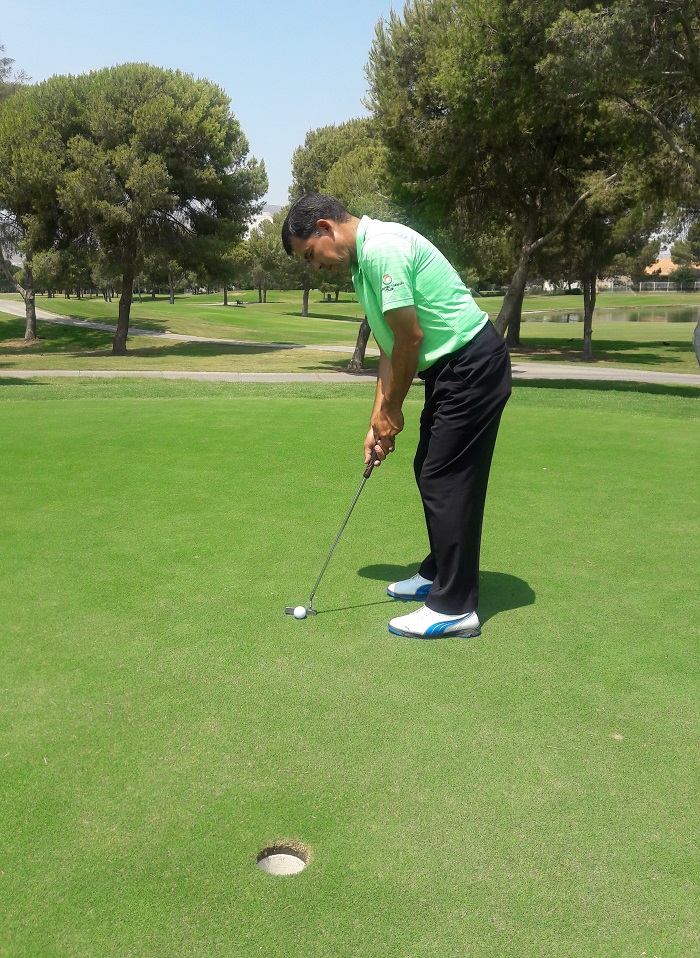
Talking in the 19th Hole
DRIVER. When you finish a competition, preparation for the next competition begins with assessing the competition you have finished. Most players do not evaluate as part of their post-round / competition routine because:
– They haven’t been trained to do it.
– Because they don’t have the tools to do it.
– Because they are unaware of the benefits it provides.
– Because they consider that the past does not matter.
– Because what they want is to forget, in case they played poorly.
Participating in a tournament provides experiences and teachings that are part of the player’s golf baggage. It is not the same to be a player who has participated in 10 annual tournaments than one who has only participated in one. The accumulated experience is a competitive advantage that makes a difference in play and the score.
Professors Pia Nilsson and Lynn Marriot, in their book «Every shot must have a purpose,» teach that there are three essential questions that a player should ask after a round:
– What was the GOOD thing?
– What could be BETTER?
– HOW can I improve?
These questions are posed positively. They don’t ask what the player did wrong. This simple strategy works because it forces you to understand your game better and be more honest with yourself, leading to positive actions.
The answers to these questions can include aspects of all four areas of the game: technique, strategy, mental and physical. It would help if you asked yourself these questions even after winning or reaching your outcome goal.
Other similar questions that are recommended:
– What did I learn today? – What did I do right?
– What experience do I want to remember from today’s round?
– What was one of the critical decisions I made today?
– If I could do something different in my game today, what would it be?
– What can you do better next time? – How am I going to make it better?
– Write three things I want to do better next time.
– What were the best experiences I had today?
– Based on today’s experiences, how am I going to prepare for the next competition?
The gist of evaluation is that it should lead to a plan of action. Learnings from the round or competition will benefit your game in the future. In the book Plan B, 30 challenges to improve your golf, you will find beneficial information to prepare for the next competition. You can receive it by subscribing to www.handy.golf.
IRONS. Some putts are more important than others, and the most important are those within a 3-7 foot range, that is, short putts. Statistics show that the putt’s most crucial distance is 5 feet (just under 2 yards).
In short putts, the goal is to get the ball into the hole, and to do so, you need to get to it, so setting a target after the hole will help all putts have a chance to hole. Another strategy on short putts is to focus on the line. The direction is crucial.

The key elements for more consistency on the line and making short putts are:
– Make contact with the sweet spot.
– Make contact with the square face and in line with the target.
– Accelerate the head of the putt through impact.
– Commitment to the line.
– The ball enters the hole firmly. By hitting short putts firmly, the ball is not at the mercy of the slope, the grass, or the hole’s shape.
– Choosing a target after the hole is necessary for better execution.
– You can also choose a point at the back of the hole. The objective is to hit the ball at that point. In some difficult putts, this recommendation does not apply.
Other essential considerations in short putts are:
– If there are doubts in the break, give firm to the center.
– Do not force the stroke; roll the ball.
– Keep your eyes down and your head still.
Feeling compelled to make short putts often has the opposite effect. Not even the best players in the world make all the short putts, so relax and focus your attention on what you can control, making a good swing and contact.
PUTTS. Code of conduct for parents of athletic sons and daughters:
1. I will remember that my child plays sports for his or her enjoyment, not mine.
2. I will motivate my child to play by obeying the rules and resolving conflicts without resorting to hostility or violence.
3. I will teach my child that doing their best is just as important as winning so that they will never feel defeated by the outcome of a game/event.
4. I will make my child feel like a winner at all times by offering praise for competing fairly and doing their best.
5. I will never ridicule or yell at my child to make a mistake or lose a competition.
6. I will remember that children learn best by example. I will applaud the players’ good performances, both from my child’s team and from their opponents.
7. I will not force my child to participate in sports.
8. I will never question the judgment or honesty of the officer in public.
9. I will support all efforts to eliminate physical and verbal abuse from children’s sports activities.
10. I will show respect and appreciation for the trained coaches and volunteers who give their time to provide sports activities for my child, understanding that I have a responsibility to be part of my child’s development. FORE.
